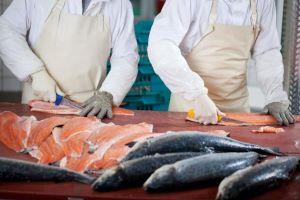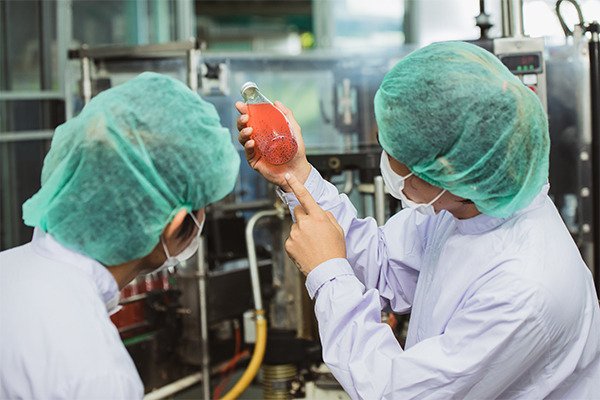The global seafood industry is a cornerstone of food security, nutrition, and economic growth. With rising demand for healthy protein sources, seafood continues to play a crucial role in meeting global dietary needs. However, ensuring sustainable practices and maintaining product quality require skilled professionals who understand the complexities of processing, safety, and sustainability. This is where a seafood processing course becomes invaluable, equipping individuals with the expertise to address modern industry challenges while promoting long-term growth.
Why the Seafood Industry Needs Skilled Professionals

The seafood industry operates in a dynamic space where global supply chains, climate change, and consumer demands all converge. Consumers today are increasingly concerned about food safety, traceability, and the environmental impact of their dietary choices. To meet these expectations, companies must adopt advanced processing methods, sustainable harvesting techniques, and strict quality controls.
Skilled professionals trained through a fish processing technology course are critical to bridging the gap between traditional practices and modern innovations. Their knowledge helps ensure seafood is processed efficiently, safely, and sustainably, contributing not only to economic success but also to environmental stewardship.
What a Seafood Processing Course Covers
A seafood processing course typically provides both theoretical knowledge and hands-on training. The curriculum is designed to align with industry standards, regulatory requirements, and sustainable practices. Core areas of study often include:
- Seafood safety and quality management – Training participants to identify and prevent contamination risks while ensuring compliance with global food safety standards.
- Processing and preservation techniques – Covering freezing, drying, canning, smoking, and packaging methods that enhance product shelf life while maintaining nutritional value.
- Sustainability and environmental practices – Teaching responsible sourcing, waste reduction, and eco-friendly packaging strategies.
- Supply chain and traceability – Equipping learners to manage end-to-end processes and ensure seafood products are traceable from source to consumer.
- Emerging technologies – Introducing modern innovations such as automation, digital monitoring systems, and advanced cold chain solutions.
Through such programs, learners develop the technical expertise to contribute effectively to the seafood sector’s evolution.
The Growing Importance of Fish Processing Technology
The application of technology in the seafood sector has revolutionized the way products are processed and delivered. A fish processing technology course highlights the use of automation, robotics, and smart monitoring systems that enhance efficiency while reducing human error. For example:
- Automated filleting and deboning machines improve speed and precision in processing.
- Cold chain innovations ensure seafood remains fresh from capture to the consumer.
- Digital monitoring tools track safety, quality, and compliance in real time.
By blending traditional knowledge with cutting-edge technology, professionals are better equipped to meet the dual demands of efficiency and sustainability.
Career Opportunities in Seafood Processing
Completing a seafood processing course opens a variety of career pathways. With global seafood trade on the rise, demand for skilled experts is increasing in areas such as:
- Quality assurance and food safety management – Ensuring compliance with international standards like HACCP and ISO.
- Processing plant operations – Supervising and optimizing seafood production lines.
- Supply chain and logistics – Managing cold chains, exports, and international distribution.
- Sustainability management – Leading eco-friendly initiatives and corporate responsibility programs.
- Research and development – Innovating new products, preservation techniques, and processing solutions.
As seafood continues to account for a significant share of global protein consumption, trained professionals will always find opportunities across local and international markets.

Sustainability: A Driving Force for the Future
Sustainability has become a defining priority in the seafood industry. Overfishing, bycatch, and environmental pollution have raised concerns about the future availability of marine resources. A fish processing technology course emphasizes the importance of sustainable harvesting, efficient resource utilization, and waste management.
For instance, advanced training programs teach learners how to maximize value from raw materials by utilizing by-products for fish oil, fertilizers, or animal feed. Such practices not only reduce waste but also create additional revenue streams, aligning profitability with environmental responsibility.
How Training Strengthens Global Competitiveness
Global seafood markets are competitive, with stringent quality requirements and trade regulations. Countries and companies that invest in specialized training gain a competitive edge. Professionals with expertise in seafood processing are better equipped to maintain international certifications, access premium markets, and build trust with global consumers.
A well-structured seafood processing course ensures that graduates understand these regulatory landscapes, making them valuable assets for businesses looking to expand globally.
Empowering Individuals and Communities
Beyond career growth, seafood processing education has the power to uplift entire communities. Coastal regions that rely heavily on fishing often face challenges such as limited job opportunities and environmental pressures. By offering training programs, these communities can cultivate skilled workforces that not only enhance the quality of local seafood products but also improve livelihoods.
Moreover, professionals trained through a fish processing technology course can introduce modern practices to traditional fishing communities, helping them achieve greater efficiency and profitability while preserving cultural heritage.
Conclusion
The seafood industry stands at the intersection of nutrition, sustainability, and global trade. As demand for safe and sustainable seafood grows, the role of skilled professionals becomes increasingly important. By undertaking a seafood processing course or a fish processing technology course, individuals equip themselves with the knowledge to drive innovation, ensure food safety, and support environmental stewardship.
In a world where sustainable food systems are a global priority, education and training remain vital tools for shaping the future of the seafood industry. Organizations dedicated to skill development are already creating transformative pathways for aspiring professionals. Among them, FICSI plays a significant role in empowering learners, strengthening the workforce, and ensuring the seafood sector thrives sustainably for generations to come.


